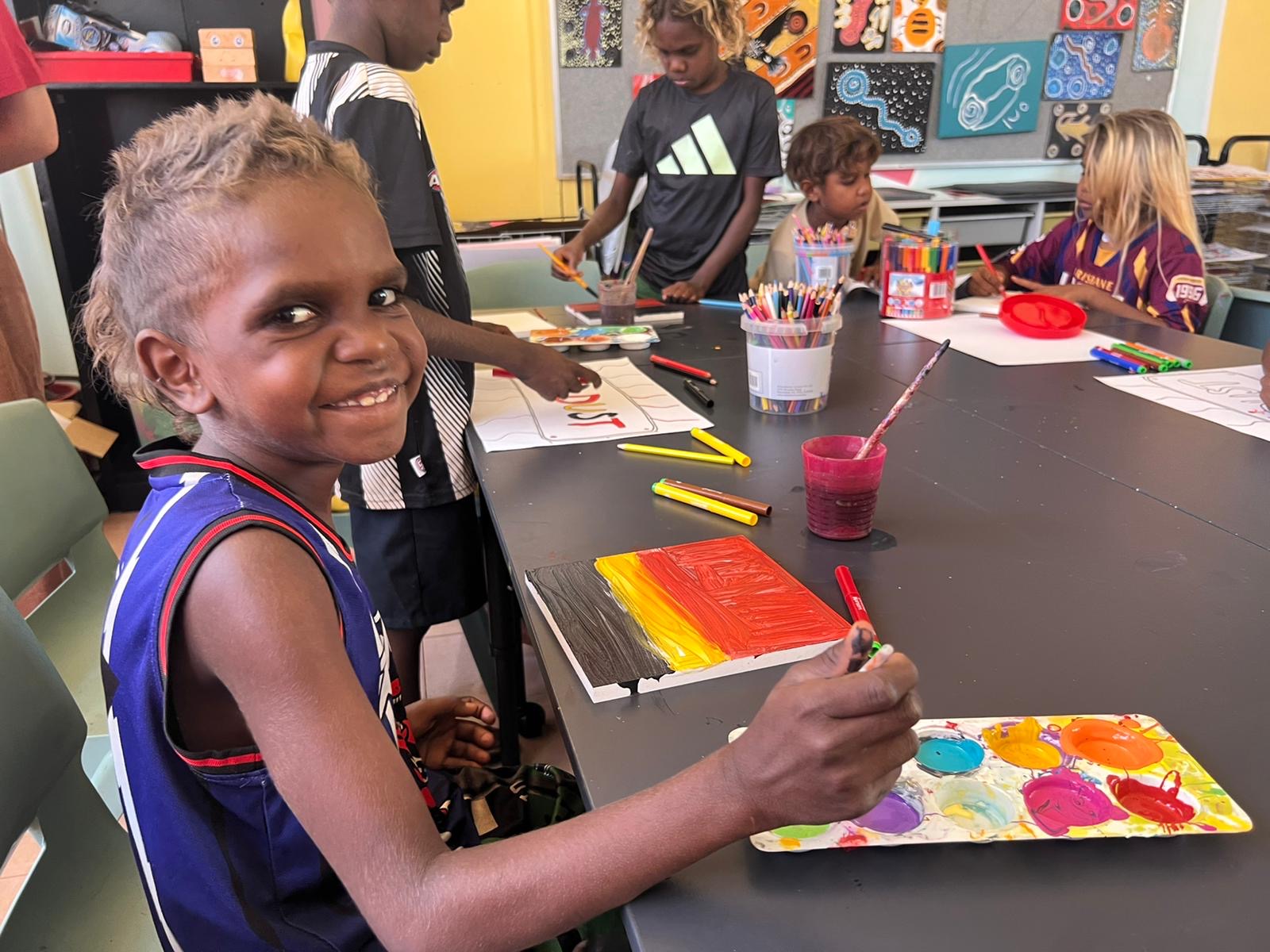Five decades on Yuendumu School is still locked in to local language!

.png)

Yuendumu has been a pioneer in bilingual education since the early 1970s, especially given a decade before this was introduced speaking Indigenous languages was discouraged and banned from classrooms.
In 1974, the community introduced a model II bilingual program in the Infants I class at Yuendumu School, integrating Warlpiri and English instruction.
Despite challenges and policy shifts over the years, Yuendumu's bilingual education program remains a testament to the community's dedication to language revitalization and educational innovation.
The community's commitment to preserving and promoting the Warlpiri language through education has been instrumental in fostering cultural pride and improving literacy among students.
How’d it all begin?
The journey to this reality started long before Bilingual Education became an official part of the school curriculum.
Linguist Kenneth Hale would visit the remote community ofYuendumu which is where he first started collected and documenting the WalpiriLanguage. That initial documentation would result in what is still being usedtoday, the Warlpiri Encyclopaedic Dictionary: Warlpiri yimi-kirli manujaru-kurlu.
Working with Hale, major contributions were made by MickeyJupurrurla Connell and Sam Japangardi Johnson (Yuendumu), Paddy JupurrurlaStuart (Lander Warlpiri) and Stephen Japangardi Simpson (Hanson Warlpiri).Hale's transcriptions of the Warlpiri speakers make up a large part of thelanguage resources used for the elaboration of the dictionary entries.
Many of the Warlpiri definitions of word meanings andexamples of usage were written by Warlpiri co-compilers Jeannie Nungarrayi Egan(1947–2009) and Marlurrku Paddy Patrick Jangala (944–94).
Nungarrayi was a teacher, curriculum developer, researcher,and an award-winning painter who also taught generations of non-Indigenouspeople about Warlpiri language, culture and Country. The audio recordings,books, posters and other teaching aids that Nungarrayi produced informed thedevelopment of this dictionary.
Music was one of the ways it was initially introduced into the school.
“Red Dust has been extraordinary to us, Red Dust has helped us as people, with their work they have encouraged our young people, our community and supported us all the way. We are very honoured to work with you”
Ned Hardgraves
Children being able to learn in their first language is a basic right. In Australia, the right for children to learn in their first language is supported by international conventions, national policies, and the understanding that language is crucial for cultural identity and educational success, especially in the early years.
And the results, impacts and opportunities as a result cannot go unrecognised.
Red Dust offer their full support to children learning in their first language and we’re honoured to be invited into Yuendumu to celebrate the milestone.
The celebrations featured an official opening by Elders, an array of awards to key contributors in the school’s bilingual education history and a beautiful photo display of memories. The school community also enjoyed a range of activities and a special performance of traditional Purlapa and Yawulyu dances by students.
The 50 Year Celebration of Bilingual education was a whole community event including Yuendumu school kids, Yapa and Kartiya staff, community members, community service providers and stakeholders, and visitors.
It was here that we also hard launched a book first dreamt up the previous year, Jirrama Yimi-Jarraku, created by the students for the students. Illustrations from the book were chosen by the students and turned into murals that the community school now has on display.
Our relationship with Yuendumu as a whole goes back to our origin story, and we have enjoyed being a part of this community’s journey over the past 20 years.
Congratulations on your anniversary Walpiri Mob! Here’s to another 50 years of preserving and teaching in language!
.png)
.png)
.png)